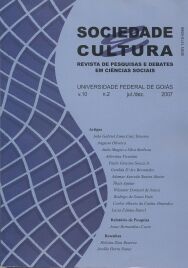A história como recurso da mimese política brasileira
DOI:
https://doi.org/10.5216/sec.v10i2.3143Keywords:
pensamento autoritário brasileiro, realismo político, mimese política.Abstract
O pensamento autoritário brasileiro estabeleceu uma dicotomia entre teoria e empiria como fontes de conhecimento para a prática política. Assim, autores como Alberto Torres, Oliveira Vianna e Azevedo Amaral criticavam todas formas de idealismos, em favor de um realismo segundo o qual era preciso dizer “o que é” o país para definir o “dever-ser”, captando fatores imutáveis e permanentes subjacentes à história do Brasil. Desse modo, para Vianna, a quebra da cadeia de continuidade não leva ao progresso. Todavia, a idéia de que é preciso progredir e evoluir, mesmo que respeitando os fatores determinantes e perenes, se faz presente. Nota-se uma tensão entre conservação e renovação, tradição e ruptura que caracteriza essa política, pretensamente realista, como produto mimético.Downloads
Download data is not yet available.
Downloads
Published
2008-01-17
How to Cite
AGUIAR, THAIS. A história como recurso da mimese política brasileira. Sociedade e Cultura, Goiânia, v. 10, n. 2, 2008. DOI: 10.5216/sec.v10i2.3143. Disponível em: https://revistas.ufg.br/fcs/article/view/3143. Acesso em: 21 jan. 2026.
Issue
Section
Free Articles
License
Authors who publish in this journal agree to the following terms:
- Authors retain the copyright and grant the journal the right of first publication, the work being simultaneously licensed under the Creative Commons Attribution License, which allows the sharing of the work with acknowledgment of authorship and of the initial publication in this journal;
- Authors are authorized to enter into additional contracts separately, for non-exclusive distribution of the version of the work published in this journal (eg, publishing in an institutional repository or as a book chapter), with acknowledgment of authorship and of the initial publication in this journal;
- Authors are allowed and encouraged to post and distribute their work online (eg, in institutional repositories or on their personal page) at any point before or during the editorial process, as this can bring productive change as well as increases the impact and the citation of the published work (see O Efeito do Acesso Livre).



